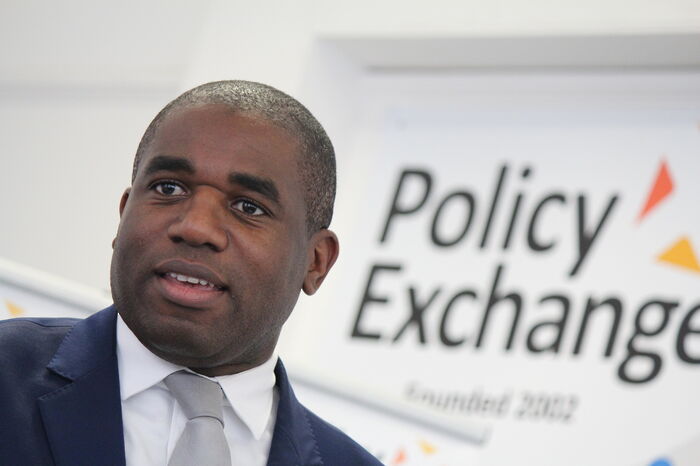Skin bleaching: how the beauty industry can change a culture of colourism
Following Nivea’s controversial advertisement which reinforced colourism, Edwin Boadu suggests that the beauty industry can play a role in changing societal prejudices based upon skin colour
The recent controversial Nivea advert, in which a black model’s skin is lightened in a highly racialised attempt to illustrate the way in which their product enhances a consumer’s beauty is undeniably racist, yet it is also mired by colourism. The advert is an overt reflection of the racial inequality which underpins the beauty industry.
A common misconception is to treat colourism as synonymous with racism, however, the term, as defined by Alice Walker, often credited with its coinage, refers specifically to the “prejudicial or preferential treatment of same-race people based solely on their colour”, in contrast to the wider racial discrimination which is based on ethnic and racial difference. Dark skin is still prejudicially equated with negative stereotypes and characteristics in society, and remains outside of the narrow, predominantly white and fair, ideal of beauty which is lauded by the fashion and beauty industry.
“Nivea’s advert is a clear indication of Western society’s continued idolisation of fairer skin, present even in 2017”
Nivea’s advert is a clear indication of Western society’s continued idolisation of fairer skin, present even in 2017, and what follows is an implied inferiority of darker complexions, especially black skin. Through the juxtaposition of, and transition from, dark to light skin the advert presents the latter as desirable and the former, in consequent contrast, as undesirable. The underpinning message of the advert plays into the racist and colourist narrative that is prevalent in our society, it encourages consumers to believe in the prejudicial and damaging belief that black skin is not ‘beautiful’. The model’s statement that the body lotion “restores her natural fairness” is an explicit example of this, implying that darker skin is somehow unnatural.
The advert also highlights the lack of representation in the beauty industry of BME people, which leads to their marginalisation as they inevitably fall outside a narrow image of beauty. The consequences of such underrepresentation are twofold. Firstly, it leads people of colour, especially those with darker complexions, to feel like outcasts in the beauty industry, and as a result in society at large. It encourages women of colour to use skin-lightening products in order to conform to what they have been told is beautiful, the lighter and fairer “norm”. Secondly, the lack of representation pervades even cosmetic companies owned by people of colour, such as Mama Africa Cosmetics, and encourages these companies also to conform to the view that lighter skin is synonymous with beauty.
Now, the question that arises from Nivea’s highly problematic advertisement is: how do we move forward from this culture of colourism? There is no straightforward answer to this question. However, I do believe that increased awareness of the detrimental impacts of colourist ideas in our society, in addition to more equal representation of all skin colours in the beauty and fashion industries, are good places to start.
Rihanna’s Fenty Beauty is perhaps the best example of a cosmetic brand that has had the initiative to represent all skin colours, providing 40 different shades of foundation. Rihanna explained her products were “created for everyone: for women of all shades, personalities, attitudes, cultures, and races. I wanted everyone to feel included”. Rihanna’s attempt to challenge the deeply embedded and normalised view that lighter skin equates to beauty, and the connected assertion that dark skin is equally beautiful, is important. Her influence has encouraged others too: brands such as Kim Kardashian’s KKW Beauty and Kylie Jenner’s Kylie’s Cosmetics are now following Rihanna’s example and trying to make their products more accessible to all skin colours.
In addition to changes within the traditional beauty industry, Youtubers including Nyma Tang and MELACHILD use their influence to raise awareness of colourism; Tang through her experiences with the products of large cosmetic brands which fail to match her dark skin, and MELACHILD through sharing her lived experience growing up as a black woman.
Needless to say, more global companies, such as Nivea, should follow the example set by Rihanna’s Fenty Beauty and more influencers should raise awareness about the alienation that people with dark skin tones experience. This would, perhaps, help to alter and diversify Western ideals of beauty, in addition to challenging both the explicit and implicit pressures they place on other cultures to conform to such racist and colourist standards
 News / Uni partners with controversial Hong Kong university2 April 2025
News / Uni partners with controversial Hong Kong university2 April 2025 News / Hundreds of jobs to be cut at Cambridge University Hospitals1 April 2025
News / Hundreds of jobs to be cut at Cambridge University Hospitals1 April 2025 Comment / More Cambridge students should study abroad 1 April 2025
Comment / More Cambridge students should study abroad 1 April 2025 News / Caius clock hand returned nearly 100 years after student prank31 March 2025
News / Caius clock hand returned nearly 100 years after student prank31 March 2025 Lifestyle / A Goodchild’s Cambridge Confessional: Volume 23 April 2025
Lifestyle / A Goodchild’s Cambridge Confessional: Volume 23 April 2025



